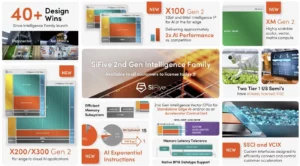
Forbes – Trump’s AI Orders, Gixel’s AR Optics, and Big Tech Spends on Nvidia
In a shocking turn of events, President Donald Trump has signed two sweeping executive orders aimed at accelerating the development and deployment of artificial intelligence (AI) technologies in the United States. These orders are designed to promote U.S. dominance in the AI space, which is expected to reach a valuation of $500 billion by 2025.
The first order focuses on loosening regulations to allow for the rapid construction of data centers and chip factories. This move is intended to give American companies like Nvidia a competitive edge over their foreign counterparts, particularly China-based entities. With this increased ability to build infrastructure more quickly, U.S. businesses can better compete in the global AI market.
The second order bars AI vendors from receiving federal contracts if their models include diversity or equity-related content. This executive order marks a significant departure from current practices and has sparked widespread criticism among AI researchers, ethicists, and social justice advocates. Critics argue that this move will stifle innovation and suppress marginalized voices within the AI development process.
Meanwhile, Gixel, an AR optics startup, has emerged from stealth mode with a €5 million seed round led by Oculus VR co-founder Brendan Iribe. The company’s innovative curved lens design enables the production of slim and lightweight augmented reality (AR) glasses suitable for everyday wear. This breakthrough could have far-reaching implications in industries such as healthcare, education, and entertainment.
As part of their funding announcement, Gixel revealed that they will be using Nvidia chips in their AR devices. This decision comes amidst reports of Big Tech companies pouring significant resources into the graphics processing unit (GPU) giant’s products.
In related news, xAI, Elon Musk’s AI company, is reportedly seeking to raise as much as $12 billion in debt to acquire Nvidia GPUs for training its AI models. According to sources, lenders are demanding repayment within three years and may limit borrowing to mitigate risk.
The implications of these developments are far-reaching. The U.S. government’s aggressive push into the AI market could lead to increased competition and innovation in the space, ultimately benefiting consumers. However, the ban on diversity- and equity-related content in AI models raises concerns about AI’s potential impact on underrepresented communities and marginalized voices.
On the other hand, Gixel’s innovative AR technology has significant potential for transforming industries such as healthcare, education, and entertainment.
Source: www.forbes.com


